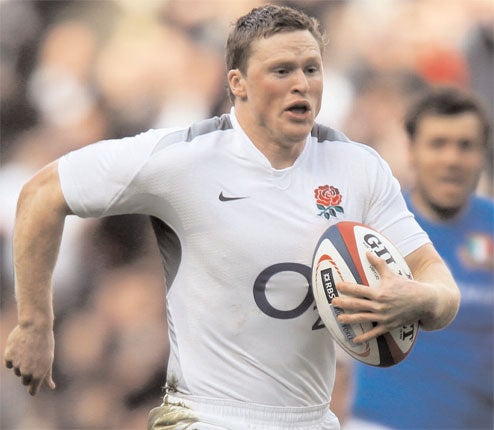IRB rule out big names at the Olympics

Your support helps us to tell the story
From reproductive rights to climate change to Big Tech, The Independent is on the ground when the story is developing. Whether it's investigating the financials of Elon Musk's pro-Trump PAC or producing our latest documentary, 'The A Word', which shines a light on the American women fighting for reproductive rights, we know how important it is to parse out the facts from the messaging.
At such a critical moment in US history, we need reporters on the ground. Your donation allows us to keep sending journalists to speak to both sides of the story.
The Independent is trusted by Americans across the entire political spectrum. And unlike many other quality news outlets, we choose not to lock Americans out of our reporting and analysis with paywalls. We believe quality journalism should be available to everyone, paid for by those who can afford it.
Your support makes all the difference.The International Rugby Board are content for the sport's Olympics debut to be contested by sevens specialists rather than household names.
Crossover between the sevens circuit and full Test rugby is non-existent now due to the demands of both formats of the game.
The presence of global stars such as England's Chris Ashton over little-known players on the sevens circuit would give the sport a far bigger profile at the 2016 Games in Rio de Janeiro.
Mike Miller, the IRB's chief executive, accepts coaches will face difficult decisions over selection but insists sevens will be a success at the Olympics with or without star names.
"It would be very difficult for teams to pick their better-known players," said Miller.
"You'll have people who play sevens on a regular basis in the world series. They are professional sevens players.
"If you have a good team, a settled team that knows each other, but the XV guys suddenly think 'there's an Olympic medal available here, we want this', the coach has a decision to make.
"Does he break up the team and bring someone in who may disrupt things, thinking 'he's a big name, can I turn him down'?
"It's very difficult and I wouldn't like to be a sevens coach, especially in the year before the Olympics.
"We understand that the appeal of the players is important, but if you're a coach you don't give a damn about appeal. All you care about is keeping your job.
"We need to build up stars in sevens, which we will do over the next couple of years.
"We will not tell teams who to pick, it's up to them to decide.
"The fans who are new to rugby aren't going to know who Dan Carter or anyone else is anyway. Instead, they'll watch the sport and judge it by itself.
"People in the traditional countries, who love the sport, will watch it anyway. I don't think it's that important.
"Our issue is not whether the big names want to do it, but are they worth a place?"
Miller believes there is little chance of sevens emulating the success of Twenty20 cricket by encroaching into the popularity of 15-a-side rugby.
"They are totally different games. In terms of 15s we already have a sport that is modern-era friendly," he said.
"It's good for television and only takes a couple of hours to play.
"If you're comparing something that takes five days to something that takes just several hours, that's a huge change.
"The difference between sevens and 15s in that way, for TV, sponsors and fans, is nothing like the massive change that there is in cricket.
"Our view is that rugby will grow, whether it's sevens, 15s, beach, tag or touch - if we get a ball in people's hands and see it on TV."
Miller's optimism over the growth of rugby comes on the day that the IRB announced the findings of a major report that showed a 19% increase in global participation since the 2007 World Cup.
In Africa and South America significant increases of 33% and 22% respectively have occurred.
While participation figures are highest in Europe, non-traditional playing nations in Eastern Europe have also emerged, contributing to the 22% increase seen across the continent as a whole.
Sevens' inclusion in the Olympic Games, event hosting strategies and IRB programmes and investment are given as the reasons for the increase.
Join our commenting forum
Join thought-provoking conversations, follow other Independent readers and see their replies
Comments